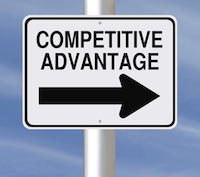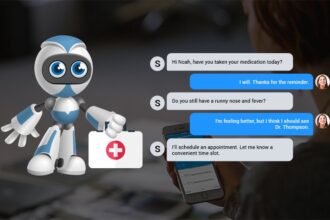
Millenials and GenXers need to get their parents using smartphones and engaged in social media if they want them to live longer, healthier, lives.

Millenials and GenXers need to get their parents using smartphones and engaged in social media if they want them to live longer, healthier, lives.
Healthcare delivery is rapidly transforming from in-office visits to telemedicine , and some predict that technology eventually could replace 80 percent of physician visits . Due to decreased Medicare payments to primary care physicians, the 65 plus group will most likely be affected the change first. Patient engagement in digital health is becoming the mantra for health services.
Seniors striving to stay abreast of the current healthcare delivery options and their value, need to be reading blogs and diving into social media. The under 40 set knows the importance of these tools to search for transparency in companies and factual information. They get it. But their parents don’t.
Here’s what I hear when I talk to the 60 and over crowd about social media:
- “I just don’t get Twitter,” my sister-in-law says.
- “Why should I care what bloggers write-it’s just an opinion or rant,” my brother-in-law chimes.
“Because that’s where the conversations about healthcare are taking place, “I explain to them
But they aren’t listening. They look at me, a 58-year-old, with disdain and disengagement. They shrug their shoulders and say “I’ll let my kids worry about it.”
That answer is deplorable. We Boomers who are using technology need your help. None of us can afford for these folks, who are the largest users of healthcare, to be digital Luddites.
Help your parents see the light
So Millennial and GenXer kids—unless you want to manage your reasonably healthy parents’ medical care for the next 20 years, I encourage you to get them on board the social media train.
- Take the time to explain to them why mobile health technology is important. Urge them to upgrade to smartphones.
- Demonstrate how to download medication adherence apps like MedCoach.
- Show them how to access blogs about healthcare via their computer.
- Explain how to follow the pharmaceutical companies that manufacture the drugs they ingest on Twitter.
- Describe how posting a complaint on Twitter and mentioning the company’s twitter handle will yield immediate results.
Tell them it’s unacceptable for their own good health to “say no to technology” or call it “too intrusive.”
Hundreds of millions of dollars has been spent on top notch web-based health and wellness websites and mobile apps that can help people like your parents manage their chronic diseases. Apps send them text messages to remind them to take their meds, monitor their heart rates and check their glucose levels—just to name a few.
As a blogger who reviews health and wellness apps, I’m astounded at all the terrific digital assistance on the market. I write about these great apps on the AARP blog site but if your parents don’t read blogs, they miss out on the information.
Daily newspapers filled with big health and medical stories are waning. WebMD and health bloggers are becoming “go to” sources for medical information. Online chronic disease alliances are the new normal. Family caregiving scheduling programs like Lotsa Helping Hands and caregiver support groups are found inside of web-based communities. Families are scattered throughout the country, and the Internet has become the mainline for communication for senior citizen healthcare management.
65+ Still Smartphone Laggards
Research shows that the 65+ crowd is trailing far beyond other groups in smartphone adoption, internet use and social networking.
Kick Your Parents in the Butt
Anyone who follows the healthcare trends or has been to a doctor’s office in the past six months knows medical care is changing. Patients are being directed to web portals to input their medical history. They are asked to arrive 15 minutes early so receptionists can type their information into electronic records software
I’ve observed senior citizens barking at physician’s receptionists request to register their health history on a web-based portal, with, “I don’t like this technology stuff,” “it takes me too long to type,” or “my daughter can do it.” Is this what you want?
To be fair, some people over 65 may no longer have the tactical or cognitive ability to input data on smartphones or computers. But there are millions of older Americans who are perfectly capable of using technology but just prefer not to or need further instruction.
So if your parents are part of the “Active Senior Set” and don’t use technology to manage their healthcare—go after them. Harp on them to get with the program. These web based medical applications aren’t a threat. They can be lifesavers.








